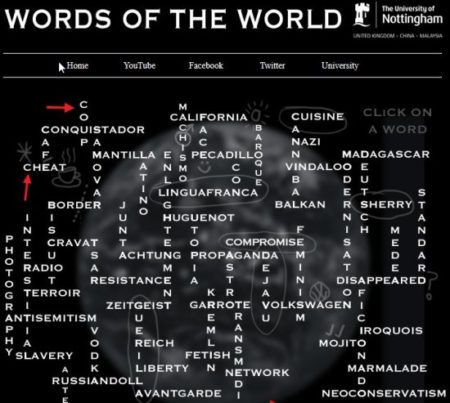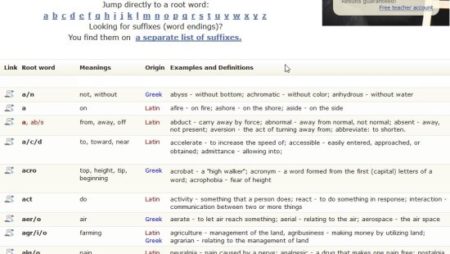English word new comes from Proto-Indo-European *new-, Proto-Indo-European *newo-, and later Proto-Germanic *niwjaz (New.)
Detailed word origin of new
| Dictionary entry | Language | Definition |
|---|---|---|
| *new- | Proto-Indo-European (ine-pro) | to incline, tend, move, push, nod, wave, to incline, push, move, nod, wave |
| *newo- | Proto-Indo-European (ine-pro) | |
| *néwyos | Proto-Indo-European (ine-pro) | |
| *niwjaz | Proto-Germanic (gem-pro) | New. |
| nēowe | Old English (ang) | |
| niwe | Old English (ang) | New. |
| newe | Middle English (enm) | New. |
| new | English (eng) | (of a period of time) Next; about to begin or recently begun.. (vegetables) The first of the season.. Additional; recently discovered.. Current or later, as opposed to former.. In original condition; pristine; not previously worn or used.. Inexperienced or unaccustomed at some task.. Newborn.. Of recent origin; having taken place recently.. Recently arrived or appeared.. Recently made, or […] |
Words with the same origin as new
- Top Definitions
- Quiz
- Related Content
- More About New
- Examples
- British
- Idioms And Phrases
This shows grade level based on the word’s complexity.
This shows grade level based on the word’s complexity.
adjective, new·er, new·est.
of recent origin, production, purchase, etc.; having but lately come or been brought into being: a new book.
of a kind now existing or appearing for the first time; novel: a new concept of the universe.
having but lately or but now come into knowledge: a new chemical element.
unfamiliar or strange (often followed by to): ideas new to us; to visit new lands.
having but lately come to a place, position, status, etc.: a reception for our new minister.
unaccustomed (usually followed by to): people new to such work.
coming or occurring afresh; further; additional: new gains.
fresh or unused: to start a new sheet of paper.
(of physical or moral qualities) different and better: The vacation made a new man of him.
other than the former or the old: a new era; in the New World.
being the later or latest of two or more things of the same kind: the New Testament; a new edition of Shakespeare.
(initial capital letter) (of a language) in its latest known period, especially as a living language at the present time: New High German.
the new, designating the newly fashionable, trendy, or popular thing, replacing or equaling the success of a specified previous one: While nothing will ever replace black as “the new black,” these new neutrals, especially beige, look like contenders.Knitting is the new rock-‘n’-roll. Is kelp the new kale?
adverb
recently or lately (usually used in combination): The valley was green with new-planted crops.
freshly; anew or afresh (often used in combination): roses new washed with dew; new-mown hay.
noun
something that is new; a new object, quality, condition, etc.: Ring out the old, ring in the new.
QUIZ
CAN YOU ANSWER THESE COMMON GRAMMAR DEBATES?
There are grammar debates that never die; and the ones highlighted in the questions in this quiz are sure to rile everyone up once again. Do you know how to answer the questions that cause some of the greatest grammar debates?
Which sentence is correct?
Origin of new
First recorded before 900; Middle English newe (adjective, adverb, and noun), Old English nēowe, nīewe, nīwe (adjective and adverb); cognate with Dutch nieuw, German neu, Old Norse nȳr, Gothic niujis, Old Irish núe, Welsh newydd, Greek neîos; akin to Latin novus, Old Church Slavonic novŭ, Greek néos, Sanskrit navas
synonym study for new
New, fresh, novel describe things that have not existed or have not been known or seen before. New refers to something recently made, grown, or built, or recently found, invented, or discovered: a new car; new techniques. Fresh refers to something that has retained its original properties, or has not been affected by use or the passage of time: fresh strawberries; fresh ideas. Novel refers to something new that has an unexpected, strange, or striking quality, generally pleasing: a novel experience.
how to pronounce new
Following the alveolar consonants [t], /t/, [d], /d/, and [n], /n/, two main types of pronunciation occur for the “long” vowel represented by the spellings u, ue, discontinuous u…e, and ew, as in student, due, nude, and new. In the North and North Midland U.S. [oo] /u/ immediately follows the alveolar consonant: [stood-nt], /ˈstud nt/, [doo], /du/, [nood], /nud/, and [noo]. /nu/. In the South Midland and Southern U.S., pronunciations of the type [styood-nt], /ˈstyud nt/, [dyoo], /dyu/, [nyood], /nyud/, and [nyoo] /nyu/ predominate. Both these types are traceable to England, as well as some less common ones, for example, those in which the high front vowel [i] /ɪ/ substitutes for the [y]. /y/. A belief that the [yoo] /yu/ pronunciations are more prestigious sometimes leads to hypercorrection, the insertion of the y sound where historically it does not belong, leading to such pronunciations as [nyoon] /nyun/ for noon. Currently in the United States, a [y] /y/ following [s], /s/, [z], /z/, [th], /θ/, and [l], /l/, as in sue [syoo], /syu/, resume [ri-zyoom], /rɪˈzyum/, enthusiasm [en-thyoo-see-az-uhm], /ɛnˈθyu siˌæz əm/, and illusion [ih-lyoo-zhuhn], /ɪˈlyu ʒən/, is used by some speakers, but is considered an affectation by others.
OTHER WORDS FROM new
new·ness, nounqua·si-new, adjectivequa·si-new·ly, adverbun·new, adjective
WORDS THAT MAY BE CONFUSED WITH new
gnu, knew, new
Words nearby new
Nevinnomyssk, Nevins, Nevis, Nevski, nevus, new, New Age, New Age music, New Albany, New American Bible, New Amsterdam
Dictionary.com Unabridged
Based on the Random House Unabridged Dictionary, © Random House, Inc. 2023
MORE ABOUT NEW
What is a basic definition of new?
New describes something that only now exists or has been around for only a short time. New also describes something that has just appeared for the first time or that is unfamiliar. New has several other senses as an adjective, adverb, and a noun.
If something is new, it has only been around for a short time. This sense of new is the opposite of old.
Real-life examples: Most stores sell products that are brand-new—they have never been used or opened. The internet is a relatively new invention as it has only existed since the late 1960s. Other technologies are much newer.
Used in a sentence: The agent showed off the new houses that were built last week.
New also describes something that just now exists for the first time. In this sense, something is new if it is a completely unique creation.
Real-life examples: Companies are always creating new products. Science and technology constantly lead to new ideas.
Used in a sentence: Fans are happy that the author is writing a new book.
New can describe something that is unfamiliar or strange. This sense is often written in the form of “new to.”
Real-life examples: People often try things that are new to them, meaning they have never experienced them before, such as new foods, books, TV shows, or hobbies.
Used in a sentence: Golf was new to me when I joined the club, but I grew to enjoy the sport over the years.
Where does new come from?
The first records of the word new come from before the 900s. It comes from the Old English nēowe and is related to the Gothic niujis, the Old Norse nȳr, and the Latin novus.
Did you know … ?
How is new used in real life?
New is a very common word that is used to refer to things that haven’t been around for very long or that are original creations.
I love the smell of new shoes 😂🥴
— Mylo☃️ (@MiloAhmeirrr) November 25, 2020
Spike Lee’s new movie is very, very well timed. That’s all I can say without breaking the embargo.
— Jeet Heer (@HeerJeet) June 11, 2020
Learned a new acronym … FAANG
Facebook, Amazon, Apple, Netflix, Google
Probably old news, new to me.
— Sarah Doody (@sarahdoody) November 23, 2020
Try using new!
Is new used correctly in the following sentence?
The ice cream shop is always coming up with new flavors that no one has ever tasted before.
Words related to new
advanced, brand-new, contemporary, current, different, late, modern, original, recent, state-of-the-art, strange, unfamiliar, unique, unusual, fresh, more, other, improved, newly, au courant
How to use new in a sentence
-
However, the Postal Service was just starting to adapt to DeJoy’s new transportation schedule, with on-time delivery rates rebounding, according to data submitted to lawmakers.
-
Last week, Senate Republicans tried to turn the tables and pass their own, much slimmer version of coronavirus aid, with $300 billion in new spending.
-
None of this is a new problem, but it’s exacerbated in a pandemic.
-
In June, Red Ventures announced a partnership with Time to launch a new version of NextAdvisor, a personal finance brand Red Ventures acquired when it purchased BankRate in 2017.
-
In June, the publisher launched its new retail marketplace, the Pro Shop, as an extension of the affiliate business it created at the end of 2019.
-
But the enemy of the new emirs is neither the Jew nor the Christian, it is the godless militant defending secularism.
-
The influential al Qaeda propagandist, who was born in New Mexico, died in a U.S. drone strike later that year.
-
Back in New York, the slow pace and inward focus of her yoga practice was less fulfilling.
-
Allegations of transphobia are not new in the world of gay online dating.
-
With all that said, representation of each of these respective communities has increased in the new Congress.
-
Descending the Alps to the east or south into Piedmont, a new world lies around and before you.
-
Here began indeed, in the drab surroundings of the workshop, in the silent mystery of the laboratory, the magic of the new age.
-
Joe looked at her with a smile, his face still solemn and serious for all its youth and the fires of new-lit hope behind his eyes.
-
There seems something in that also which I could spare only very reluctantly from a new Bible in the world.
-
We should have to admit that the new law does little or nothing to relieve such a situation.
British Dictionary definitions for new
adjective
- recently made or brought into beinga new dress; our new baby
- (as collective noun; preceded by the)the new
of a kind never before existing; novela new concept in marketing
having existed before but only recently discovereda new comet
markedly different from what was beforethe new liberalism
fresh and unused; not second-handa new car
(prenominal) having just or recently becomea new bride
(often foll by to or at) recently introduced (to); inexperienced (in) or unaccustomed (to)new to this neighbourhood
(capital in names or titles) more or most recent of two or more things with the same namethe New Testament
(prenominal) fresh; additionalI’ll send some new troops
(often foll by to) unknown; novelthis is new to me
(of a cycle) beginning or occurring againa new year
(prenominal) (of crops) harvested earlynew carrots
changed, esp for the bettershe returned a new woman from her holiday
up-to-date; fashionable
(capital when part of a name; prenominal) being the most recent, usually living, form of a languageNew High German
the new the new voguecomedy is the new rock’n’roll
turn over a new leaf to reform; make a fresh start
adverb (usually in combination)
recently, freshlynew-laid eggs
anew; again
Other words from new
Related prefix: neo-
Derived forms of new
newness, noun
Word Origin for new
Old English nīowe; related to Gothic niujis, Old Norse naujas, Latin novus
Collins English Dictionary — Complete & Unabridged 2012 Digital Edition
© William Collins Sons & Co. Ltd. 1979, 1986 © HarperCollins
Publishers 1998, 2000, 2003, 2005, 2006, 2007, 2009, 2012
Other Idioms and Phrases with new
In addition to the idioms beginning with new
- new ballgame
- new blood
- new broom sweeps clean, a
- new leaf
- new lease on life
- new man
- new one
- new person
- new woman
- new wrinkle
also see:
- break (new) ground
- breathe new life into
- feel like (new)
- nothing new under the sun
- teach an old dog new tricks
- turn over a new leaf
- what’s cooking (new)
- whole new ballgame
The American Heritage® Idioms Dictionary
Copyright © 2002, 2001, 1995 by Houghton Mifflin Harcourt Publishing Company. Published by Houghton Mifflin Harcourt Publishing Company.
We use different languages worldwide to communicate with each other. Every so often we wonder where a word came from. How did a particular word start being used as a common word worldwide and where did it actually originate from. So to find this out we will explore the world of languages and origin of words in this article. This article will cover websites which will let you know the origin of a word.
The study of origin of a word is known as Etymology. You will find that often there are popular tales behind the origin of a word. Most of these tales are just tales and not true, but knowing how the word came into being is equally interesting. So let’s look at these websites to know the origin of words below.
Online Etymology Dictionary
Online etymology dictionary explains you the origin of words and what they meant along with how they would have sounded years back. You would see a date beside each word. This date represents the earliest evidence of this word being used in some sort of written manuscript. Now you can either search for a word you are looking for by typing it in the search box given at the top of the page, otherwise you can browse the words alphabetically. The website has a huge collection of words in it. You can go through the words and find out there origins and meanings as well.
Word Origins by English Oxford Living Dictionaries
Word Origins by English Oxford Living Dictionaries is a good website to know about a words origin. You can check out origin of a word or a phrase. You can search for the word or a phrase you are looking for or can even browse the page to know origin of different words. The website apart from this has a dictionary, thesaurus, grammar helper, etc. As this app has a dictionary, it proves to be a good source for knowing the origin of a word. You can see trending words when you scroll down the page. You can also subscribe to the newsletter on this website to receive updates regarding new words, phrases, etc.
Wordorigins.org
The website Wordorigins.org will let you know the origin of words and phrases. The website has a big list of words which you can go through, or even search for a particular word that you are looking for. The website also has a blog and discussion forum where people can discuss there views. You can login and become a member of the website so you receive regular updates from the website. You can either start browsing words by going to the big list words tab, or by searching for a word. The big list of words is in alphabetical order and there are about 400 words in here. Each word has a interesting story or folklore related to it.
Words of the World
Words of the World is a website which lets you watch videos to let you know the origin of a word. The website explains which language a word originated from through a video. The home page of the website will have a list of words for which you can see a video explaining how the word originated. The words on the home page are given in the format as shown in the screenshot above, but they can also be turned into a neat list if you like. The website is supported by the University of Nottingham and thus is a trusted source.
Learning Nerd
Learning Nerd is another website which has a section on English etymology resources. The website lists references to origin of words like there are word origin dictionaries listed, words with Greek and Latin roots are under a different category, words originating from around the world can be found under international words, and then there is a section for miscellaneous words. You can also play etymology quizzes and listen to etymology podcasts as well. The website itself doesn’t have much information about word origins but will redirect you to another website for your word needs.
Learn That Word
Learn That Word is another website which lists root words and prefixes. The website is pretty basic and a list of words can be seen right on the first page. The words are listed alphabetically, so you can even jump to a word that you are looking for easily. The website will list the root word, its meaning, its place of origin, and then definition and examples. This can be seen in the screenshot above.
These are the websites I found which let you know the origin of a word. Go through them and let me know which one you liked most. If you think there is a website which could be included in this article then leave a comment below.
Add to saved lessons
| Dec 24, 2021Dec 23, 2022
LESSON OVERVIEW
In this lesson about the origins of new words in English, students practise their listening skills, figure out the meanings of some newly formed words and eventually create their own new words.
B2 / Upper Intermediate60 minStandard LessonUnlimited Plan
WARM-UP & ORIGINS OF NEW WORDS
The warm-up activity starts with five facts about the English language. Students read five gapped sentences and have to complete them with five given numbers. They move on to a vocabulary task and need to identify the synonyms of eight given words in eight sentences (e.g. absorb – take in, catchy – memorable). This task is followed by a brief discussion about the origins of new words and leads to a video activity. At first, students speculate about how new words enter a language and watch the video for the first time to check if their speculations were correct. Then, they listen again, this time focusing on more detailed information. They analyse a table with some missing facts and complete the gaps.
DISCUSSION
After the listening activity about where new words come from, students read nine sentences including some recent examples of such words (e.g. Brexit, staycation, antivaxxers). They try to explain their meanings and then classify them into five categories – depending on how they were formed (e.g. compounds, blending, borrowing). Encourage them to add more examples which they know and use. Then, students engage in a discussion about the origins of new words and share their preferences and opinions regarding different types of new words in their languages. In the last task, they need to use their imagination and create two new words which fall into one of the categories they learnt about earlier. They come up with their definitions, teach them to the class and guess the categories of their classmates’ new words. Eventually, students choose their favourite newly created words.
WORKSHEETS
Subscribe to unlock these and many other Printable & Digital lesson plans with the Unlimited plan
Subscribe






